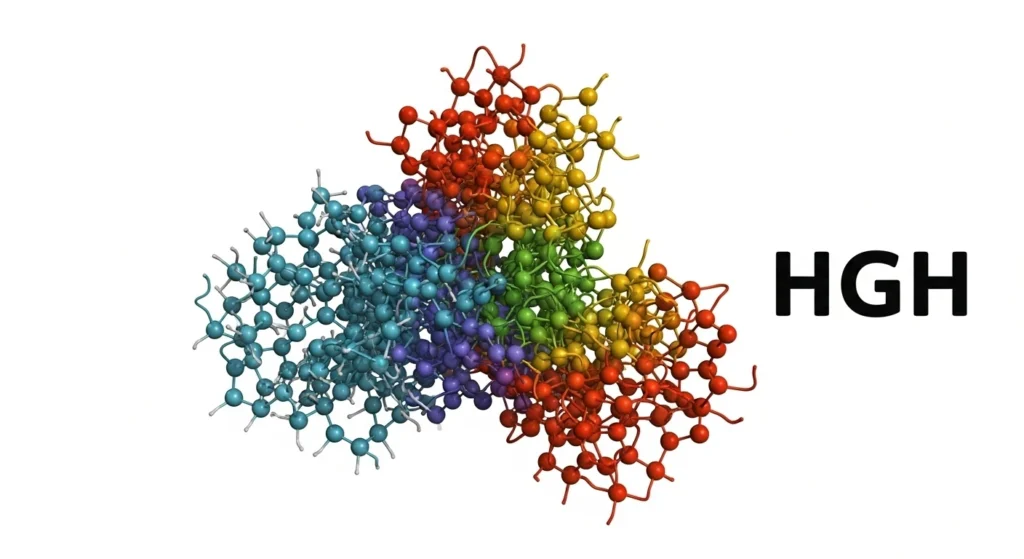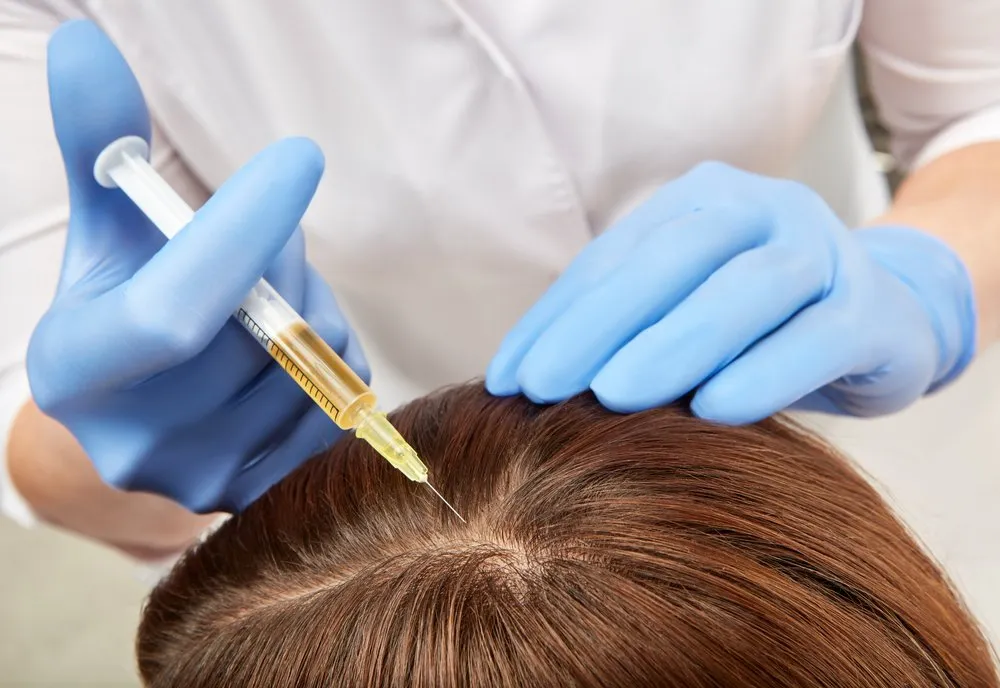Are you wondering, does HGH help hair loss or make it worse? If thinning hair is a growing concern, understanding the role of human growth hormone (HGH) might give you new hope. HGH influences hair growth through its effect on IGF‑1, a hormone that stimulates hair follicles.
In this article, we’ll break down the science behind HGH and hair loss, weigh its potential benefits and risks, and explore expert-backed alternatives—so you can make an informed, confident decision about your hair health.
What Is HGH and How Does It Work?

Human Growth Hormone (HGH) is a naturally produced hormone secreted by the pituitary gland. It’s responsible for cell regeneration, growth, and tissue repair, including the skin and hair follicles.
Role of HGH & IGF‑1 in Hair Growth
- HGH stimulates the liver to produce insulin-like growth factor 1 (IGF‑1).
- IGF‑1 binds to hair follicle receptors and extends the anagen (growth) phase of the hair cycle.
- It may help in reviving dormant follicles and reducing miniaturization, a key feature in pattern baldness.
Does HGH Help Hair Loss? What Research Shows
Positive Indicators from Research
- Some studies have found low IGF‑1 levels in individuals with hair thinning, suggesting a potential link between HGH/IGF‑1 and follicle health.
- In cases like Laron Syndrome—a condition with IGF‑1 deficiency—patients often experience hair underdevelopment, supporting the hormone’s role in growth.
Laboratory & Animal Study Findings
- Ex vivo studies show that growth hormone can prolong the anagen phase and delay the catagen (regression) phase, especially in female scalp hair.
- Mice given topical IGF‑1 showed increased hair shaft thickness and density.
Risks & Side Effects of HGH for Hair
Possible Increase in DHT
- HGH can indirectly raise testosterone levels, which may convert to DHT (dihydrotestosterone).
- DHT is the primary cause of androgenetic alopecia, particularly in men.
Systemic Side Effects
- Insulin resistance, joint pain, carpal tunnel syndrome, and acromegaly may result from long-term or unsupervised HGH use.
- Hormonal imbalances can exacerbate shedding in some individuals.
Legal and Ethical Considerations
- In many countries, HGH is regulated and only approved for specific medical conditions.
- Using it for hair loss may fall under off-label use, which is legal but should be physician-guided.
Who Might Benefit?
HGH or IGF‑1 Deficient Individuals
- People with diagnosed deficiencies may see general hair improvement after treatment.
- HGH replacement therapy may normalize biological functions, including follicle health.
Sex-Based Differences
- Some research shows that HGH-induced follicular catagen is more prominent in females.
- Men may benefit more due to different hormone pathways, but individual response varies.
Safety, Dosage & Monitoring Guidelines
Always consult a licensed physician before starting HGH therapy.
Safe Practice Checklist:
- ✔️ Baseline lab tests (IGF‑1, DHT, fasting glucose)
- ✔️ Doctor-prescribed dosage (typically 0.01–0.03 mg/kg/day)
- ✔️ Regular monitoring (every 3–6 months)
Alternatives & Adjuncts to HGH
If HGH isn’t right for you, several clinically approved options can help manage hair loss effectively:
| Treatment | Mechanism | FDA Approved? | Ideal Use Case |
|---|---|---|---|
| Minoxidil | Vasodilation, prolongs anagen | ✅ | Early-stage thinning |
| Finasteride | DHT inhibitor | ✅ | Male pattern baldness |
| LLLT | Stimulates mitochondria | ✅ | Adjunct to other treatments |
| PRP Therapy | Platelet-derived growth factors | 🚫off-label | Diffuse or post-shock loss |

FAQs
Q1: Will HGH make my hair thicker faster?
A: Possibly, in IGF‑1 deficient individuals. However, results vary and may take 4–6 months.
Q2: Can HGH cause more hair loss at first?
A: Yes, temporary shedding is possible due to hormonal adjustment.
Q3: Is HGH legal for hair loss treatment?
A: It’s legal with a prescription, but not specifically approved for hair restoration.
Q4: How long until I see results?
A: Initial changes may appear in 3–6 months, with optimal effects after 12 months.
Q5: What’s the difference between IGF‑1 topical and HGH injections?
A: Topical IGF‑1 targets follicles directly; HGH acts systemically through the liver.
Your Next Step
If you’re considering HGH for hair loss, don’t go it alone. Book a consultation with Dr. Rana Irfan in Islamabad today to get a personalized evaluation, lab tests, and expert guidance on safe, effective hair restoration solutions.
